Photographs: Dipak Chakraborty/Rediff.com
In an interview to CNN-IBN, veteran Congress leader Pranab Mukherjee talks about being chosen as the United Progressive Alliance's candidate for the President's post, his equation with party president Sonia Gandhi and why he will not participate in a debate against rival P A Sangma
On Sangma's call for a debate:
"The issue is not about a debate, but a debate on what? The President is a figurehead. Debates take place on issues -- on the issues determined by political parties. They place those issues before the electorate and the leader of the political party which forms the government or the prime minister debate those issues. The Indian President does not determine policy. Here, President is not the policy maker. In the name of the President, the Cabinet takes the policy decision".
"As far as Sangma is concerned, yes I love him. He is a bright man."
On Mamata not supporting the 'son of Bengal':
"Let's not look at the President's office from that angle. Mamata has explained her reasons in the statement. She thought Dr A P J Abdul Kalam will contest the election. Kalam did not agree to contest and she has not yet taken a decision (on who she will support). I hope she will take that decision at the appropriate time. I appeal to her to extend her support to me."
"After all, she is running a political party and it has become successful through her own efforts. She has every right to choose her own part. I am continuing to appeal to her".
Click on NEXT for more...
'Dr Singh is one of the finest and worthiest people'
Image: Pranab Mukherjee with Congress chief Sonia Gandhi and Prime Minister Manmohan SinghOn not becoming the prime minister:
"I don't regret that. I am repeating that Dr Manmohan Singh is one of the finest and worthiest people to be the prime minister. After Jawaharlal Nehru and Indira Gandhi, he will be the only PM to complete a second term. So (I have) no regrets at all."
On the 'vote of conscience':
"What is conscience vote? When the party decides something, is the member going to say it's against his conscience?"
On being indispensable for the Congress:
"I am a party man. When this issue was debated, I told the Congress president clearly that whatever role is assigned to me, I will discharge that faithfully. After holding discussions, she took a decision. At the meeting of the UPA, those present including (Nationalist Congress Party chief) Sharad Pawar and others, decided unanimously (on my candidature)".
"When Agriculture Minister Fakhruddin Ali Ahmed or Defence Minister R Venkat Raman were chosen for the vice president's post or Home Minister Gyani Jail Singh for the President's post, the party had a huge majority. There was no question about the nominee not getting elected. So it was easy for the party to decide. But we are in a coalition. So the party will have to take a decision after considering many things".
"Now, we have received support from various political parties. And it is expected that the elected members of various political parties, who constitute the Electoral College for the Presidential poll, will go by the decision of their respective parties. The UPA, with Mamata Banerjee's Trinamool Congress, had four lakh sixty one thousand votes. So we were short of about one lakh votes. We thought we can get support from other parties because both the Samajwadi Party and the Bahujan Samaj Party were supporting the government from outside. They have around 11 thousand votes. So, as per arithmetic, the UPA candidate can win the election."
Click on NEXT for more...
'Which party worker will say no to the president'?
Photographs: Reuters
On not enjoying Congress president Sonia Gandhi's confidence any more:
"If the party president tells me that you are required for a certain kind of work, which party worker will say no to that? That speaks of confidence and not lack of confidence."
On the campaign against him:
"How could the issue of black money be debated? These are issues which Parliament should debate. This is not a question of an individual. These are the decisions of the government. There has been a full-fledged debate in Parliament on black money through an adjourned motion".
"There should not be any scope for this. This election is on a different plane altogether. The Electoral College consists of all the elected members. They are elected on party lines. Therefore the political parties decide (about this election). The Indian Constitution has clearly laid down the role of the President and mode of elections. There these things are not mentioned."
On enjoying the support of all parties:
"As political activists, we talk to each other and we interact with each other. There are many people who have many friends in all political parties. I am not an exception."
Click on NEXT for more...
'I will have no party'
Image: Trinamool Congress chief Mamata BanerjeePhotographs: Reuters
On his new role as President:
"Transition takes place always. There is nothing wrong in it. We have the capacity and the system has the capacity to facilitate this transition. For example, the Speaker is elected to the House on the ticket of a party. The Speaker is elected with the majority support of the ruling party members. The moment he or she takes office, s/he becomes impartial."
"Despite being a political activist within the Congress, if my Electoral College makes me the President of the Republic, I will have no party."
"If you analyse the Electoral College and if a political party has huge majority in both the Houses, naturally it will have majority in most of the states. That party decides (who will become the President). It has happened in India more than often. But I would not say that any President, from Rajendra Prasad to the incumbent one, has indulged in partisanship".
On coalition politics:
"Coalition politics is happening due to necessity. The objective of the electorate is not to elect few members but to elect a government. But if no political party gets a majority, the coalition becomes necessary. There is a compulsion (to do so) because you can't go for a general election everyday."
Click on NEXT for more...
'Nehru and Gandhi are the inspiration for every Congressman'
Photographs: Reuters
On being in the public life:
"My father was a freedom fighter. After Independence, he was an important functionary of the Congress. Therefore, politics was always a part of my family".
"In mid-1960s, I was teaching in a college when Ajay Mukherjee was removed from the presidency of the Pradesh Congress Committee. I thought it was not good to remove a person that way. So when he formed an outfit, I helped him. But my involvement was limited. My first appearance on a political platform was in 1966 and they sent me to Rajya Sabha in 1969".
"As a student, I used to read the proceedings of the debates in the Constituent Assembly in Bengali newspapers. When I was a college teacher, one of my colleague's father was a member of the Lok Sabha. I used to request him to get the proceedings of Lok Sabha and I used to read those."
On the finest moment in his political career:
"Sometimes, I have been recognised as a political activist. As a minister, I shall have to accept the recognition and also the criticism. What helped me get that Euro Money magazine ranking was my decision to step up the development expenditure. That was the time of the sixth five-year plan and the total public sector expenditure was Rs 97,500 crore. It was observed in the first two years that the expenditure on the planned side was well below 26 per cent. So I stepped it up to improve the balance of payment."
On being a follower of Nehruvian politics:
"Of course, Nehru and Gandhi are the inspiration for every Congressman. They shall continue to be so."
Click on NEXT for more...
'You should join the system'
Image: The Rashtrapati BhavanOn not being part of electoral politics any more:
"I told you earlier that I will not fight the Lok Sabha election in the long run. Presently, I am thinking of no other destination but my library. I have collected some books but I did not get any time to read them. I will utilise the time to read those books."
On the younger generation's dislike for politics:
"My simple advice is that if you feel something is rotten in the system, you should join the system and remove those undesirable elements. A large number of politicians dominating the political scene of the country today are self-made. The political families have also come up after struggling. In public life, nobody can come up without a struggle."
"Younger people should come forward. Generational changes should take place. We, the older generation, should make way for the younger generation."
On whether he will miss active politics:
"I was getting ready for some sort of retirement, not retirement exactly but the type of politics I have been doing all these years. There is a limit beyond which you cannot go."
"The role of the President is defined in the Constitution and the great stalwarts who have occupied the office have laid out the path. It is easy for any incumbent to follow their path."
Click on NEXT for more...

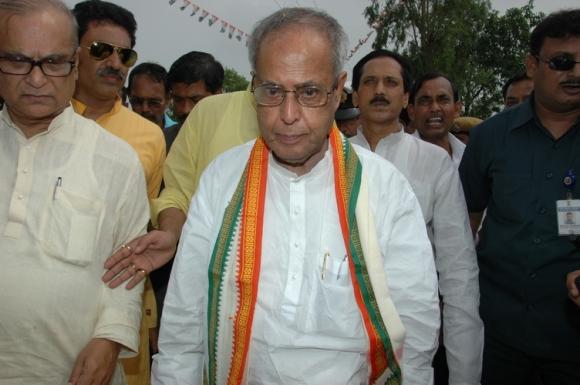
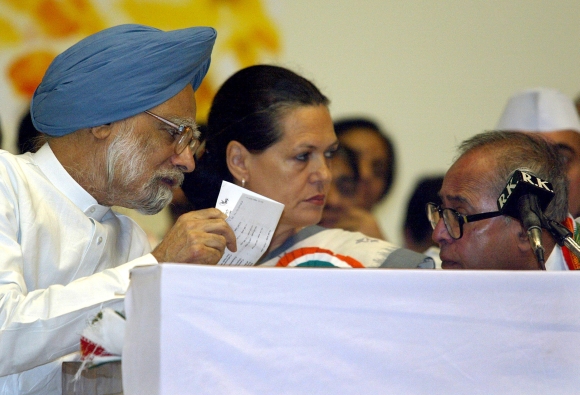
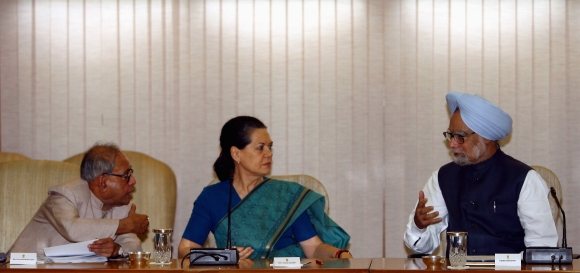
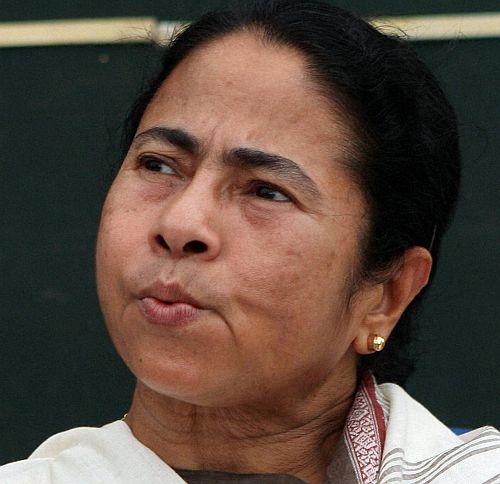

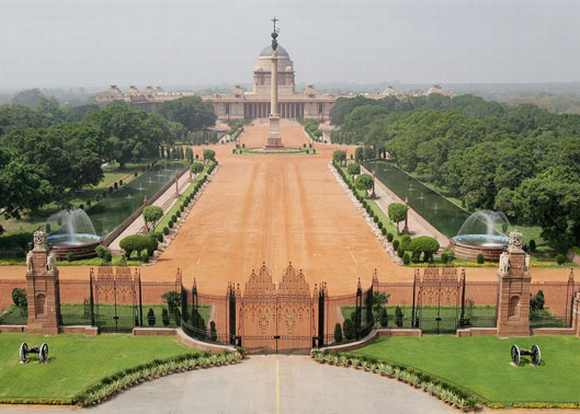
article